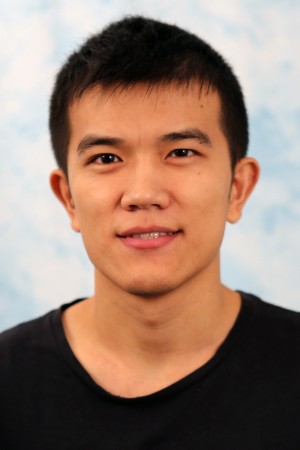PhD Speaking Qualifier
Sparse Spatial Hashing for Dense 3D Reconstruction
Abstract: Real-world 3D data is locally dense but globally sparse. Therefore, efficient sparse data structures are an essential component of dense 3D perception for computer vision and robotics. We manifest the power of spatial hashing by two typical tasks: dense scene reconstruction and global registration. In the first task, we accelerate volumetric integration and surface [...]
Carnegie Mellon University
3D Multi-Object Tracking for Autonomous Driving
Abstract: 3D multi-object tracking (MOT) is a key component of a perception system for autonomous driving. Due to recent progress in 3D object detection in the context of autonomous driving, recent work in 3D MOT primarily focuses on online tracking with the use of a tracking-by-detection pipeline. In this talk, we introduce a new 3D [...]
Carnegie Mellon University
Ergodic Trajectory Optimization for Information Gathering
Abstract: Planetary robots currently rely on significant guidance from expert human operators. Science autonomy adds algorithms and methods for autonomous scientific exploration to improve efficiency of discovery and overcome limited communication bandwidth and delay bottlenecks. This research focuses on planning trajectories for information gathering and choosing sampling locations that have the most informative samples. We [...]
Carnegie Mellon University
Residual Force Control for Agile Human Behavior Imitation and Extended Motion Synthesis
Abstract: Reinforcement learning has shown great promise for synthesizing realistic human behaviors by learning humanoid control policies from motion capture data. However, it is still very challenging to reproduce sophisticated human skills like ballet dance, or to stably imitate long-term human behaviors with complex transitions. The main difficulty lies in the dynamics mismatch between the [...]
Studying the Evolution of Pedestrian Group Space
Abstract: Imagine walking along a busy sidewalk, do you track the movement of every single individual? Or do you simply group pedestrians with similar moving patterns and then track the movement of this group? Grouping is a common behavior in pedestrian navigation and it is typically inappropriate for a robot to cut through the social [...]
Carnegie Mellon University
Soft actuators by electrochemical oxidation of liquid metal surfaces
Abstract: Soft robotic systems typically operate through the use of soft actuators constructed from highly deformable materials or liquids. Because of their intrinsic compliance, these actuators can achieve elastic resilience and adaptability similar to their biological counterparts. One challenge with engineering these artificial muscles is the selection of soft materials and activation methods while maintaining [...]
A Graph-Based Method for Joint Instance Segmentation of Point Clouds and Image Sequences
Abstract: While learning-based semantic instance segmentation methods have achieved impressive progress, their use is limited in robotics applications due to reliance on expensive training data annotations and assumptions of single sensor modality or known object classes. We propose a novel graph-based instance segmentation approach that combines information from a 2D image sequence and a 3D [...]
Continual Reinforcement Learning using Self-Activating Neural Ensembles
Abstract: The ability for an agent to continuously learn new skills without catastrophically forgetting existing knowledge is of critical importance for the development of generally intelligent agents. Most methods devised to address this problem depend heavily on well-defined task boundaries which simplify the problem considerably. Our task-agnostic method, Self-Activating Neural Ensembles (SANE), uses a hierarchical [...]
Carnegie Mellon University
Unsupervised 2D-3D Lifting with Deep Structure Priors
Abstract: Learning to estimate non-rigid 3D structures from 2D imaged observations is bottle-necked by the availability of abundant 3D annotated data. Learning methods that reduce the amount of required annotation is of high practical value. In this regard, Non-Rigid Structure from Motion (NRSfM) methods offer the opportunity to infer 3D structures solely from 2D annotations. [...]
Model Adaptation for Compliant Parallel Robot with Nonstationary Dynamics
Abstract: Soft robots can be constructed with few parts and from a wide variety of materials. This makes them a potentially appealing choice for applications where there are resource constraints on system fabrication. However, soft robot dynamics are difficult to accurately model analytically, due to a multiphysics coupling between shape, forces, temperature, and history of [...]









